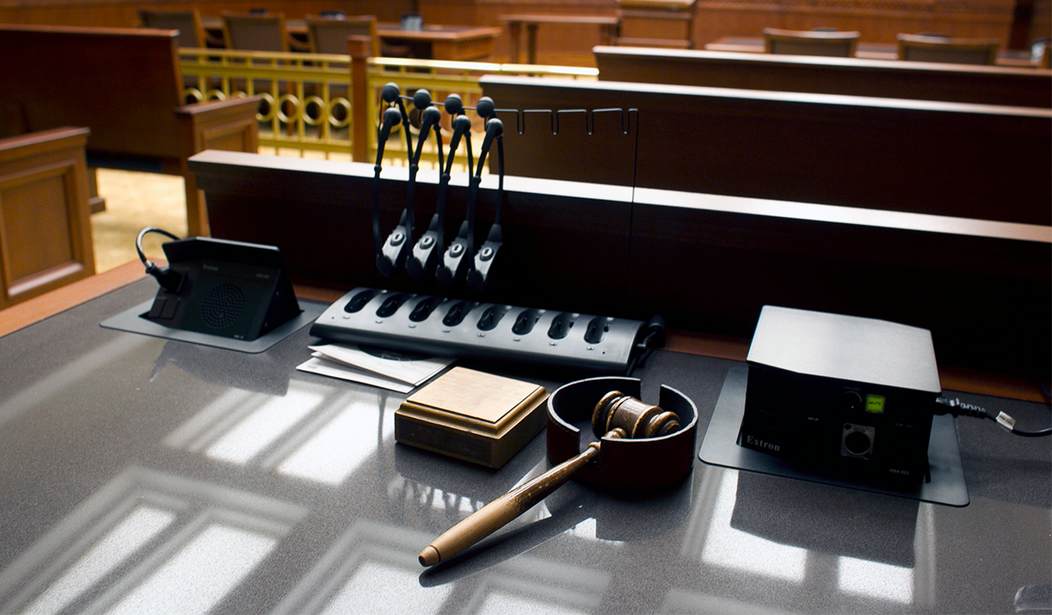In a case very reminiscent of Range v. Garland, in which the Third Circuit Court of Appeals ruled that Bryan Range’s conviction for lying about his income on a food stamp application decades ago should not have resulted in a lifetime prohibition on keeping or bearing arms, a federal judge in Pennsylvania has ruled that a man’s 2005 DUI arrest and conviction on misdemeanor charges cannot disqualify him from exercising his Second Amendment rights.
Though Edward Williams was convicted of a misdemeanor offense, it was also a crime punishable by up to five years in prison. Williams didn’t serve any time behind bars, however. Instead, he was sentenced to 90 days of house arrest and ordered to receive treatment for drug and alcohol abuse. Since the potential sentence was more than a year in prison, however, the misdemeanor conviction meant that Williams was considered a prohibited person going forward, and he was no longer allowed to possess or purchase a firearm.
Williams first tried challenging the statute in question back in 2017 and was denied, but applied for a re-hearing after the Supreme Court issued its decision in Bruen last year. This time around, in a case argued by 2A attorney Joshua Prince and supported by the Firearms Policy Coalition, U.S. District Judge John M. Younge applied the Court’s text, history, and tradition test to the Williams case, as well as the Third Circuit’s decision in Range v. Garland, and found that Williams cannot be denied access to his right to keep and bear arms as a result of a non-violent misdemeanor conviction, even if it was punishable by years behind bars.
The Government has not met its burden in proving that the prohibition on Plaintiff’s possession of a firearm due to his DUI conviction is consistent with historical firearms regulations. Finding a historical tradition of similar firearms regulations “requires that the government identify a well-established and representative historical analogue, not a historical twin.” A modern regulation that would not have been contemplated during the Founding Era can be found relevantly similar to then-existing regulations by considering “how and why the regulations burden a law-abiding citizen’s right to armed self-defense. That federal law has, over the past century, allowed for the disarmament of certain types of convicted criminals does not satisfy the constitutional issues raised by applying Section 922(g)(1) to all convictions punishable by more than a year of imprisonment. Instead, the Court must consider more longstanding limitations on firearm possession to “demarcat[e] the scope of [the] constitutional right.” The historical firearms regulations provided by the Government are not sufficiently analogous to the case considered here to satisfy its burden.
Younge noted that while he remains “quite concerned about the prospect of granting access to firearms to persons who have demonstrably abused alcohol”, he remains unconvinced that “the general dangerousness of drunk driving and of combining firearm use and alcohol consumption establishes that DUIs must therefore be considered sufficiently analogous to historical examples of ‘dangerous’ conduct that have previously served as grounds for disarmament.” Younge acknowledged the government’s citing of laws that prohibited the carrying of firearms while intoxicated, but argued that none of those regulations “allude to disarmament lasting beyond the individual’s state of intoxication, and none provided for permanent disarmament, as Section 922(g)(1) does.”
I agree with Younge that drunk driving is a serious concern, and not something that should be easily dismissed, but the fact is that Williams wasn’t barred forevermore from getting behind the wheel of a car because of his misdemeanor conviction. He can obtain a driver’s license and purchase a vehicle despite his DUI conviction that’s now nearly 20 years old, but he can’t legally purchase or possess a firearm. That’s a punishment that doesn’t fit the crime, as far as I’m concerned.
I’m sure the DOJ will appeal this case to the Third Circuit, but given their decision in Range it’s unlikely that Merrick Garland is going to get the response he’s looking for from the appellate court. By the time Williams v. Garland gets to SCOTUS the justices will have had a chance to weigh in on Bryan Range’s case, and if the Court does adopt a “dangerousness” standard for depriving individuals of their Second Amendment rights in Rahimi, then both Range and Williams have an excellent chance of having the lower court decisions in their favor approved by a majority of Supreme Court justices as well.









Join the conversation as a VIP Member